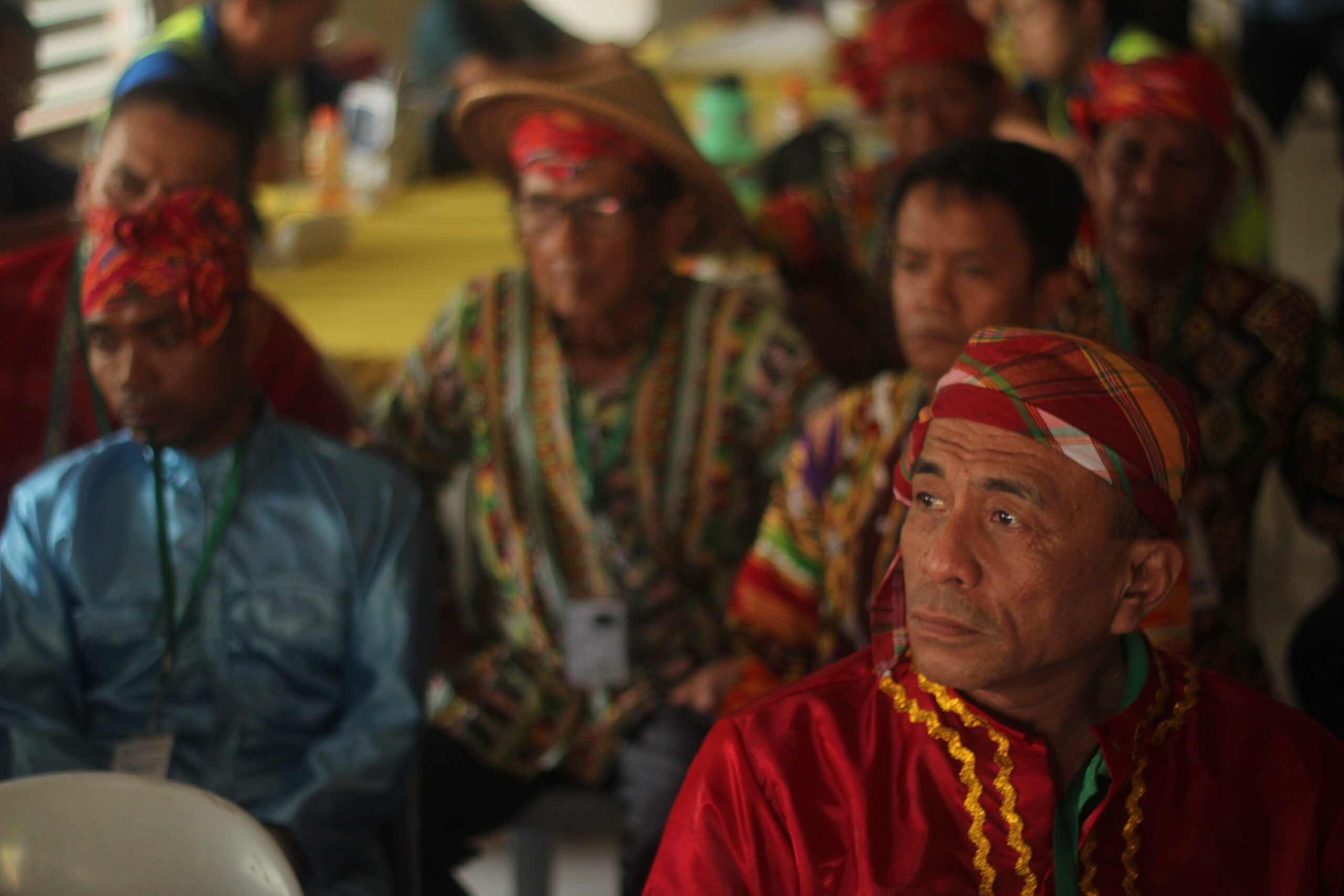SUMMARY
This is AI generated summarization, which may have errors. For context, always refer to the full article.

DAVAO CITY, Philippines – At the sidelines of a gathering of hundreds of fellow leaders representing indigenous peoples in the Autonomous Region in Muslim Mindanao (ARMM), Timuay Santos Unsad relayed the general sentiment among the Lumad on the proposed Bangsamoro Basic Law (BBL).
The Teduray leader said they want a version of the BBL that not only represents the aspirations of the Moros, but also of the Lumad. (READ: Revised draft of the Bangsamoro Basic Law)
“We are not anti-Moro,” he said, trying to make himself clear. The Lumad, he added, are not out to create a rift with the Moro Islamic Liberation Front (MILF).
Unsad was at the two-day Mindanao Indigenous People’s Legislative Assembly for the Bangsamoro Basic Law (MIPLA-BBL), held to collect suggestions from the leaders on how the BBL should be revised. Each participant got a thick draft of the BBL, with pages with blank columns for them to write down their annotations.
The event was backed by the Office of the Presidential Adviser on the Peace Process, which will assist the Lumad in collating the results of the consultation. The goal is to provide a tally of the results to Congress. (READ: Duterte to certify new Bangsamoro law as urgent)
Lumad’s ancestral domain in Moro land
In seeking revisions in the BBL, Unsad cited the proposed BBL’s failure to mention critical elements that protect the non-Islamized indigenous tribes within the proposed Bangsamoro entity.
“While the IPRA is not outrightly invalidated, one of the 4 bundles of the IPs had been taken away,” said Unsad.
IPRA, or the Indigenous Peoples’ Rights Act, became a law in 1997. It is aimed at protecting the indigenous peoples’ rights to their ancestral domains. This law protects the Lumad’s native land titles that pre-date the Spanish era. Unlike the modern concept of ownership, lands of Lumad are communal properties and belong to all generations.
More importantly, they cannot be sold, disposed, or destroyed, according to the same law.
However, IPRA was never implemented in the ARMM due to the lack of an equivalent enabling law for the region. And with no mention of the IPRA in the BBL, the Lumad hope that it’s not too late to revise the Bangsamoro bill.
“If we don’t have that, it would feel as if we would be killed slowly,” Unsad said in Filipino.
Non-Islamized indigenous people in the ARMM also have ancestral domain claims within the proposed Bangsamoro entity, such as the site of the batew, a sacred stone of the Tedurays near the MILF’s Camp Omar in Maguindanao.
Not too late to revise BBL
The proposed BBL is among the measures that are expected be prioritized by the House of Representatives this year, along with bills on civil unions and government reorganization.
In August, MILF Central Committee Chairman Al Haj Murad Ebrahim expressed hope that Congress would not pass a “diluted” version of the bill.
With Lumad leaders proposing a revision of the BBL, what could be their message to the MILF?
“We are not anti-Moro,” reiterated Unsad. “We just don’t want a regressive (BBL) law.”
North Cotabato 2nd District Representative Nancy Catamco said it is not too late for the Lumad leaders to push for a revision of the bill.
“As of now, the reason why we call it ‘draft’ is because it is yet to be finalized,” she told reporters on Friday, September 1.
The MIPLA-BBL is hoped to produce constructive input for the BBL.
Nearly a decade ago, in 2008, fighting erupted when the Supreme Court (SC) blocked a government deal with the MILF. Some 700 additional villages, including parts of Cotabato and Lanao del Norte, were to be annexed to the ARMM under the deal.
In its decision, the SC said that by signing the Memorandum of Agreement on Ancestral Domain, the government would violate several laws that protect the Lumad. – Rappler.com
Add a comment
How does this make you feel?
There are no comments yet. Add your comment to start the conversation.